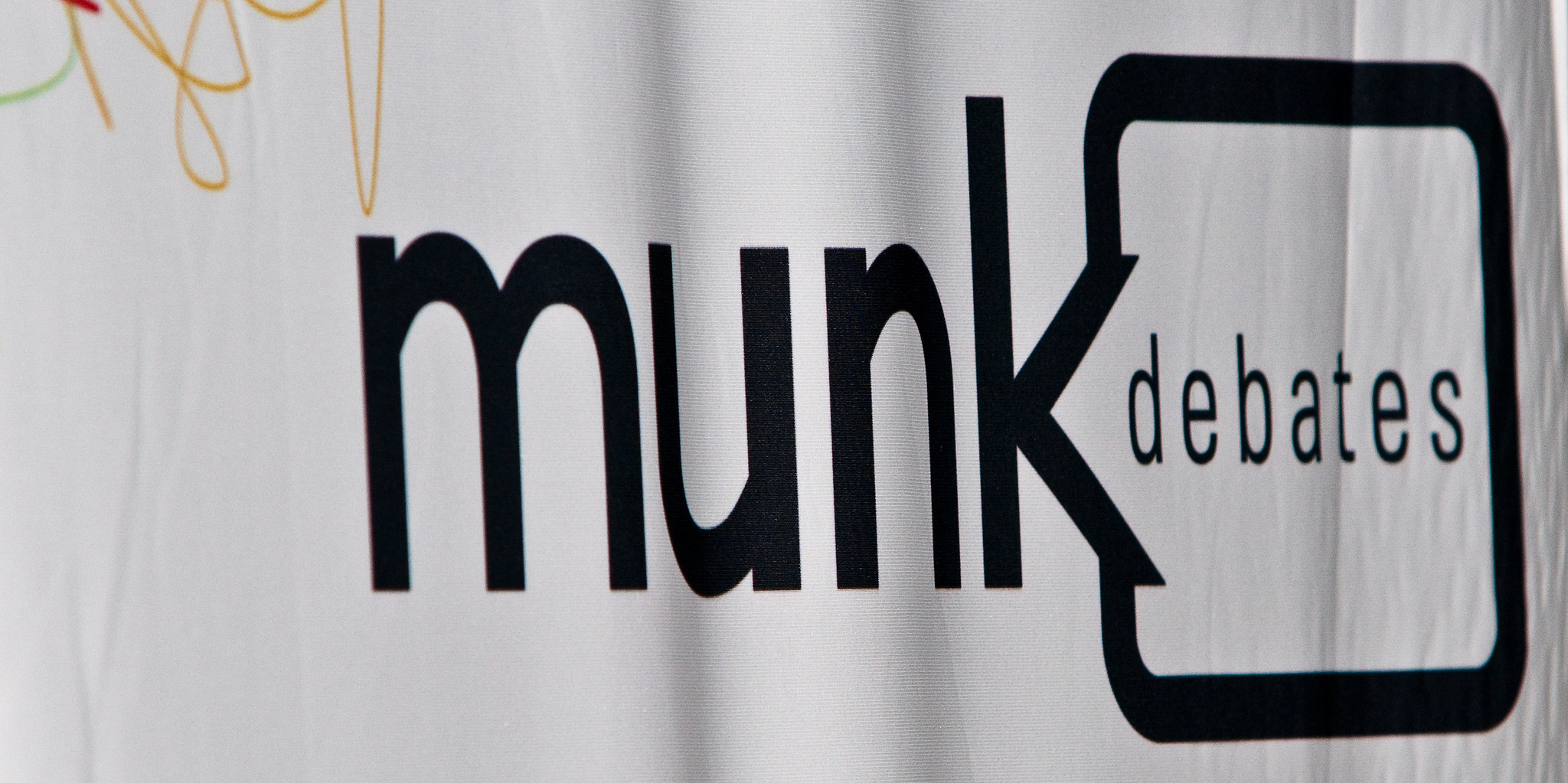How close is too close when it comes to media outlets working with institutions set up by wealthy individuals to influence the news?
The question becomes important to ask when Canada’s “national newspaper” promotes a worldview paid for by one of the planet’s most controversial mining magnates. The Globe and Mail’s close ties to the Munk Debates and University of Toronto’s Munk School of Global Affairs should worry journalists and everyone who cares about foreign policy discussion in this country.
The debate series and academic school were launched with tens of millions of dollars in financing from Peter Munk, founder and long-time head of Barrick Gold, a company that has directly benefited from Canadian foreign policy. Espousing far-right political views, Munk praised Chilean dictator Augusto Pinochet, compared Venezuelan president Hugo Chavez to Hitler and claimed Indigenous people have too much power.
As the paper has done with previous Munk Debates, the Globe published a two-page spread in advance of last week’s debate on the theme of “Goodbye to all that: Is the international order as we know it over?” The Globe interviewed Harvard historian and supporter of the 2003 invasion of Iraq, Niall Ferguson, who argued yes and CNN commentator Fareed Zakaria, another Iraq war proponent, who made the case for the no side in the debate.
A biannual forum dealing with major political issues, Munk Debates was founded in 2008. Last week Peter Munk announced $5 million more in funding for a debate series that has included former British Prime Minister Tony Blair, actress Mia Farrow and former US Secretary of State Henry Kissinger. During the 2015 federal election Munk Debates held the first-ever Canadian foreign policy leaders debate, which studiously avoided any discussion of regulating Canadian mining companies’ activities abroad or the appropriate level of government aid to these profitable corporations.
The head of the Munk Debates, Rudyard Griffiths, conducts a bi-monthly Next Debate interview and podcast series for the Globe.
Canada’s newspaper of record also has ties to the University of Toronto’s Munk School of Global Affairs, which is itself linked to the Munk Debates. Weeks after stepping down as the Globe’s editor-in-chief in 2014 John Stackhouse was appointed senior fellow at the Munk School, which has received nearly $50 million from Peter Munk since 1997. Stackhouse joined long-standing Globe editor-in-chief William Thorsell in this position.
With financing from the Globe, CBC News, Toronto Star, Postmedia and Thomson Reuters, in 2012 the Munk School launched the Munk Fellowship in Global Journalism to train individuals considered experts in various subject areas to become reporters. The head of the Munk journalism program, Robert Steiner, is a former vice president of Bell Globemedia, parent of the Globe and CTV.
In another example of the ties between the newspaper and Munk School, prominent Globe columnist Margret Wente was appointed to the committee awarding the Lionel Gelber prize to the best non-fiction book on foreign affairs in English. But, as the National Post’s Chris Selley pointed out, this took place a few weeks after the Globe columnist was embroiled in a plagiarism scandal. Coincidentally, a year earlier Wente wrote a column headlined “Our World Needs More Peter Munks” that praised his company’s international mining operations.
Munk School faculty are frequently quoted or published in the Globe. For example, soon after becoming the school’s new director in 2015, Stephen J. Toope published two long articles about the direction of Canada’s international relations and the paper interviewed Janice Stein on her departure and Toope on his arrival.
In an article highlighting the ties between the Munk School and the Globe titled “The Globe and Mail as corporate apologists: behind the love affair with Barrick Gold,” Protest Barrick organizer Sakura Saunders pointed to an illogical editorial the paper published on the Toronto-based mining company in 2011.
While describing reports of rape by Barrick Gold security forces in Papua New Guinea and killings in Tanzania, the editorial noted how “[Barrick has] developed detailed corporate social responsibility policies, pledging to carry out their activities in an environmentally, socially and economically sustainable manner, and hiring experts and staff to make sure this happens. Last year, Barrick became the first Canadian mining company to sign a global agreement called the Voluntary Principles on Security and Human Rights, which obliges it to investigate and report human-rights abuses at its work sites.”
Despite the mining company aggressively opposing legislation that would restrict public support for resource corporations responsible for major abuses abroad, the Globe editorial concluded, “Barrick and other Canadian miners now deserve praise for their efforts (perhaps overdue) to raise industry standards.” Notwithstanding the Globe editorial’s claim, Barrick has been accused of human rights or environmental abuses throughout the Global South.
The Globe’s ties to institutions established by a wealthy ideologue with a personal stake in a particular foreign policy highlights the importance of building alternative media, one that comforts the afflicted around the world and afflicts the comfortable. We need media that sets out to challenge, rather than reinforce, the power imbalances in our world.
Image: flickr/michael_swan
Chip in to keep stories like these coming.




